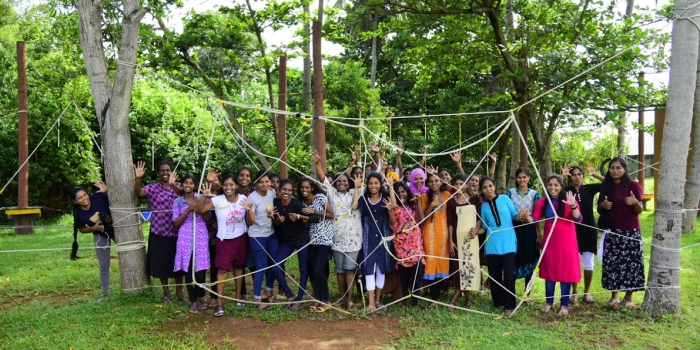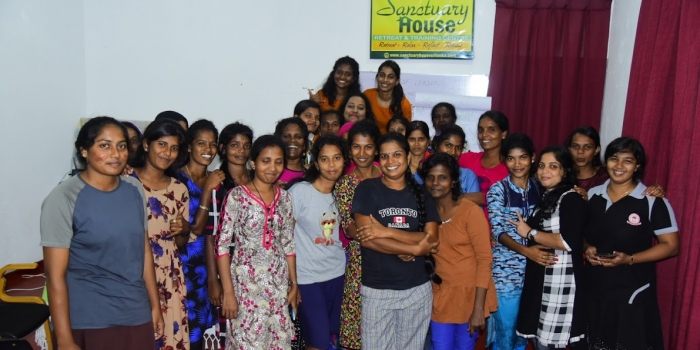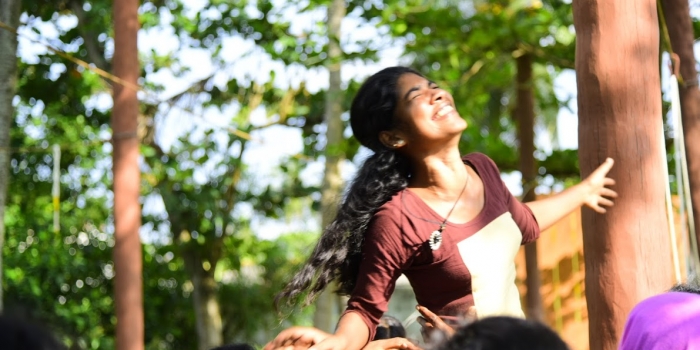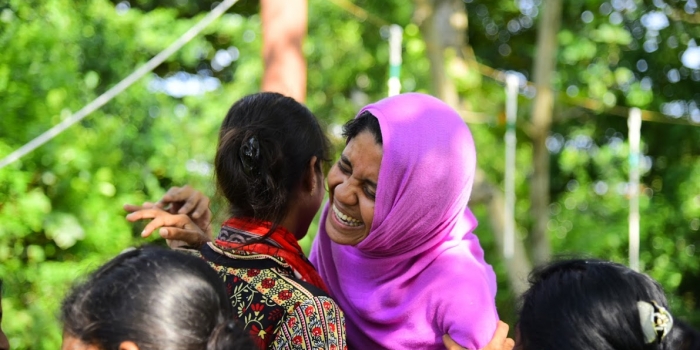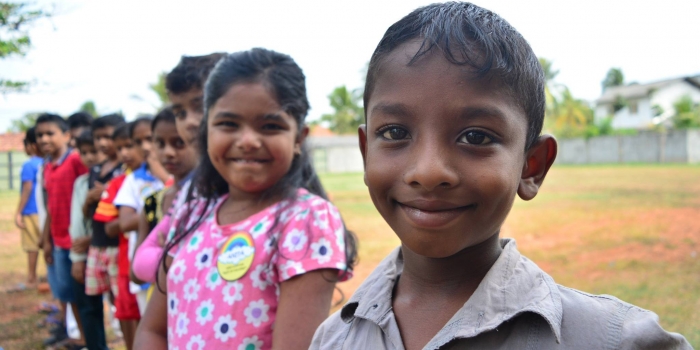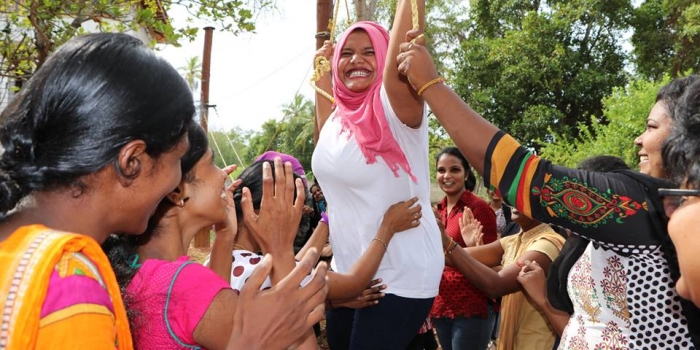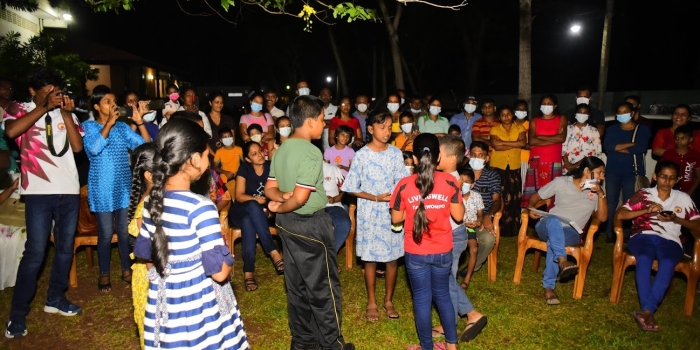A two-day Leadership, Teambuilding and Social Media Training program for 32 participants from Mannar Women’s Development Foundation (MWDF) in October
32 Women activists from the Mannar Women’s Development Foundation (MWDF) checked into Sanctuary House late in the evening of October 1st 2019. They were here to participate in a Leadership and Teambuilding program custom-made for their requirement. The organizers’ request was that these ladies learn to be independent and proactive in identifying issues as well as addressing them in their communities.
The program was conducted on the 2nd and 3rd October: activities included both outdoor activities designed to build their proactive problem-solving skills, conflict resolution and change management, resource optimization, leadership and collaboration, effective communication and risk management. Each activity was followed by a classroom session where the participants leant to identify the lessons they learnt as well as create practical applications using a simple “traffic lights” tool. This tool helped the participants to quantitatively list the lessons learnt as well as qualitatively apply them to real-life situations.
In addition to a digital treasure hunt, A frames and Trolleys, the participants really enjoyed their time on the various challenges of the Low Ropes Course which helped them overcome trust and confidence issues as well as resolve many team lessons including proactive problem solving, mutual support and change management, goal setting and planning and more.
One additional but very important session was conducted by MS Jennifer Joseph of Joseph’s Foundation Kandy who is an expert on Social Media tools. This session helped the participants learn best principles for proper use of Social Media tools and the safe navigation of the same as women. Many of them shared the challenges they faced in confidence to the presenter and obtained customized solutions to address their safety. In addition the participants also learn how to use the same tools for both their activism work as well as for purposes of generating revenue in an effective and ethical way. This session was also highly appreciated by the participants.
The highlight of the 2nd day was the Rafting challenge. Participants had to construct stable rafts with optimum usage of the the resources given , and them complete the tasks assigned using the same rafts. One of the lessons learnt and shared by a participant was “ these barrels are made of plastic which is generally considered bad. But by using the same plastic barrels in a proper way, we were able to cross the water and achieve our objective. In the same way while many say Social Media is bad like plastic, if we use it in the proper way, we can both be safe in our community as well as use the same Social Media to achieve our objectives.”
The participants who were divided into 3 groups at the onset of the training had also been to tasked to collect photographs and video clips of all the activities and compile them into a final video film. All 3 teams created really good videos which presented their perspective of what they had learnt as well as how they planned to use these lessons in their work.
One of the participants shared the following as her feedback from the lessons: This leadership training was very effective as it used fun activities to teach us valuable lessons. The framework we learnt using the traffic lights system taught us how we should categorize lessons as what we should stop doing immediately, what we should continue doing and improve on , as well as what is it that we need to commence. This framework was very useful to apply lessons to both my personal life as well as my work as an activist.
Some of the other lessons we learnt were : how to face and overcome challenges, how to maintain team unity and collaborate to complete our tasks, how to resolve roadblocks through creative solutions so that we can attain our goals, and more.
All these lessons helped me change myself in several aspects. In addition I plan to adopt these activities as well as implement the same lessons in the community I work in, in order to mobilize people and achieve our common goals”
This is an example of how experiential learning tools can be used to help participants both learn and apply lessons in their personal lives as well as at work. Sanctuary House is able to provide customized training programs for both biblical lessons as well as general work-life situations.




